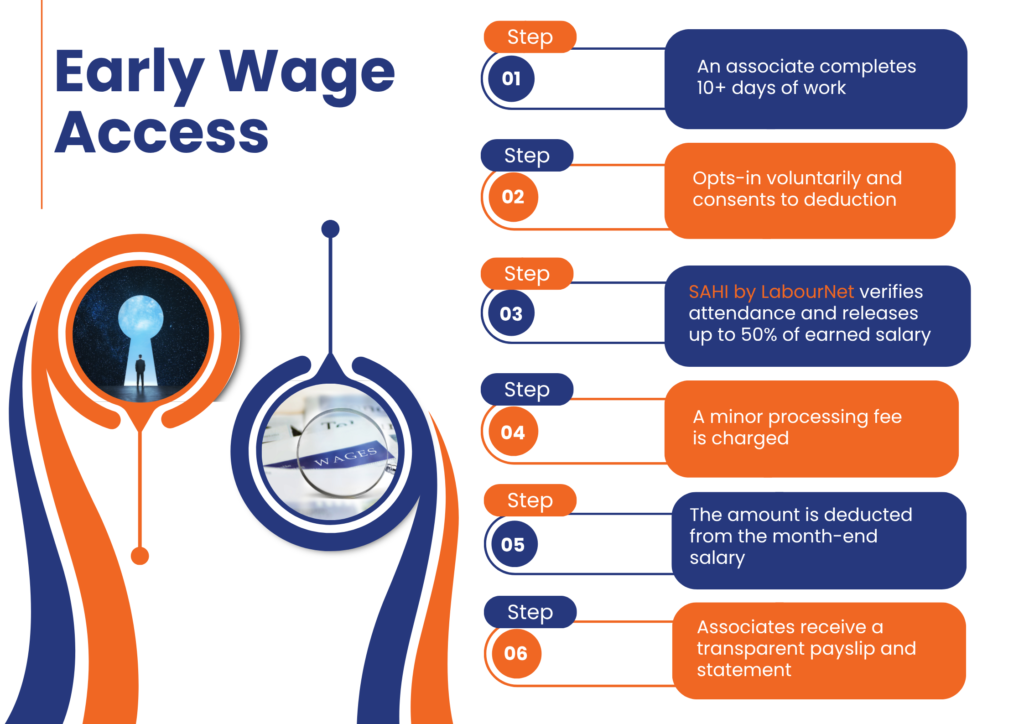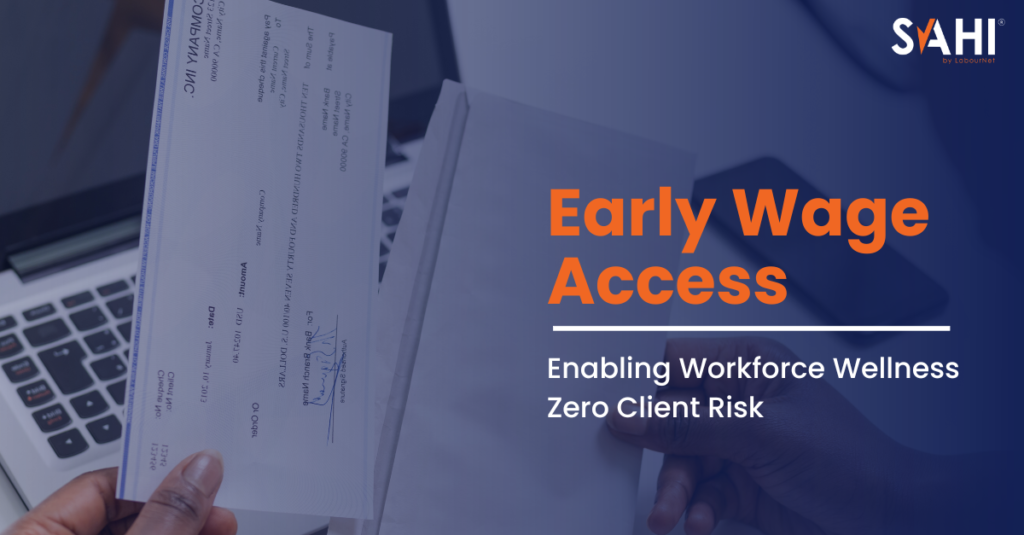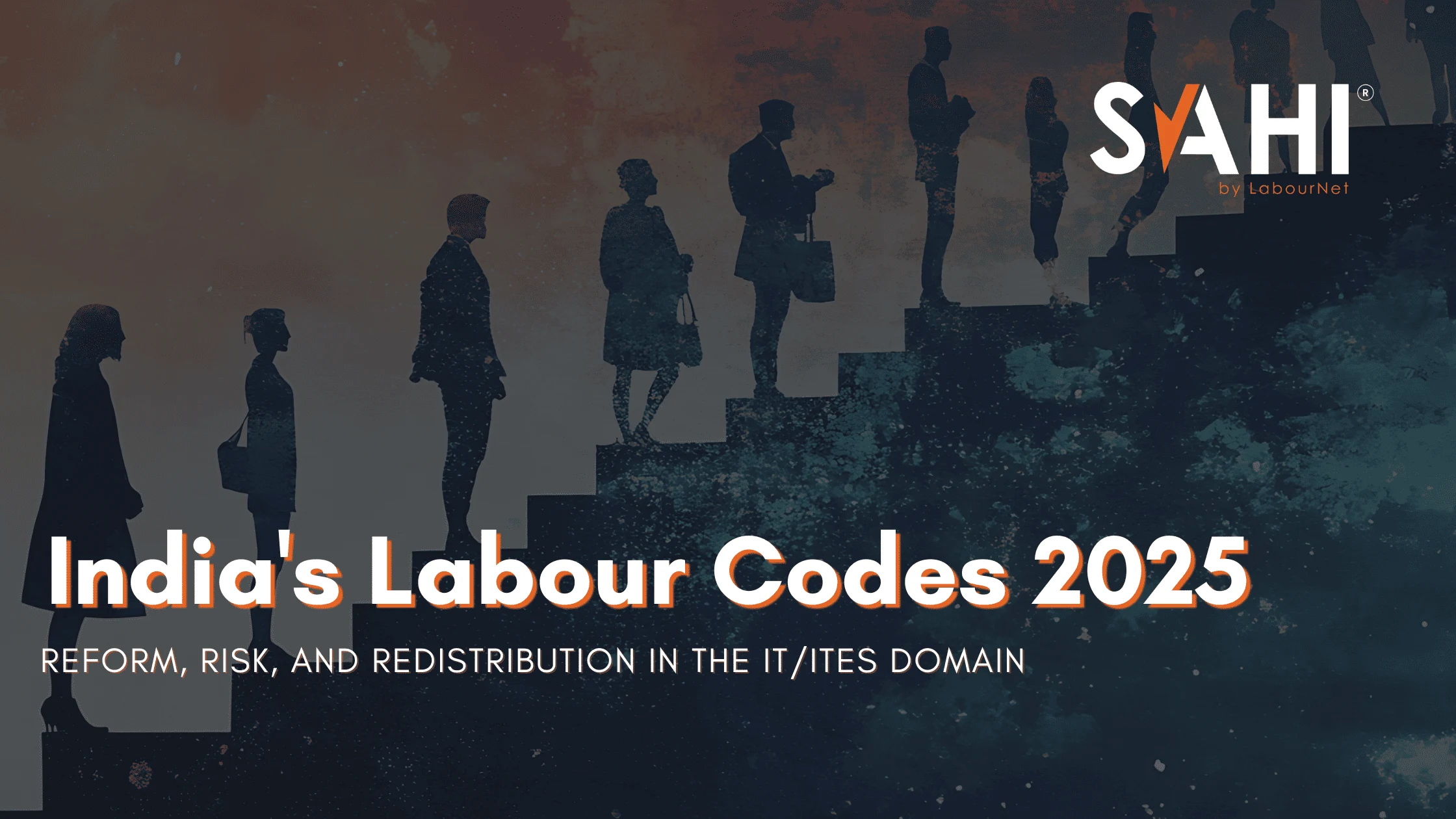Early Wage Access
Enabling Workforce Wellness | Zero Client Risk
Groceries can’t wait. Medical emergencies don’t follow salary calendars. And children’s school fees rarely come with grace periods. Statistics tell us that about 80% of Indian employees run out of money before month-end, and 34% exhaust their salary by mid-month.
For India’s frontline workers, payday is just one of many factors in the game of employment.
The traditional monthly pay cycle seems out of sync with daily life. (Source: Refyne–EY Survey, 2021)
According to a PwC 2023 survey:
- 28% of full-time employees often or always run out of money between paychecks (including 15% earning over $100K).
- 1 in 3 employees say financial stress negatively affects their productivity.
- Financially stressed workers are 5× more likely to be distracted at work and 2× more likely to seek a new job.
- 73% would consider switching to an employer offering financial wellness tools.
For many workers — especially in blue- and grey-collar roles — financial stress is not occasional; it’s chronic. And that stress doesn’t stay at home. Reducing this stress directly impacts both financial and business health.
When workers feel secure, they perform better, stay longer, and engage more deeply.
SAHI by LabourNet saw the need for this system to change, for both workers and employers, and we extended our solutions to include: Early Wage Access (EWA)
SAHI’s EWA Model:
Built for Workers. Designed for Enterprises.
How It Works – Early Wage access gives workers access to a portion of their already earned wages through the following steps:

EWA replaces financial stress with stability, eliminates the need for high-interest credit, and builds trust between employers and their workforce – all without disrupting payroll or adding cost to the enterprise.
At SAHI, we’ve embedded Early Wage Access into our broader Workforce Wellness Framework. Our model is:
- Zero cost, zero liability for employers
- Seamless integration with existing systems – no payroll delays or administrative burden
- Fully managed by SAHI – from tech to transaction to worker support
And for the workers? It’s instant, easy, and empowering – no credit checks, no paperwork, and no interest. Just access to what they’ve already earned.
Why Early Wage Access is a Workforce Wellness Gamechanger
Proof from the Ground: Financial Stability Drives Retention
A South Indian garment factory implemented EWA for low-income women workers.
Reported outcomes:
- increase in daily attendance
- rise in daily productivity
- 32% reported ease from one paycheck to another — driven by better retention and consistent workforce participation
Multiple global studies and provider reports highlight EWA’s workforce impact:
- Turnover reduction: Ranges from 12% to 36%
- Absenteeism reduction: ~25% of employers reported improvements
- EWA usage: ~40% of employees accessed wages weekly for essentials like food, transport, and medicine
One worker put it simply:
“It’s not a loan. It’s my own money. I just get to use it when I actually need it.”
That feeling — of control, dignity, and freedom, is what keeps workers coming back to work.
From Perk to Productivity Strategy
Early Wage Access is more than a financial tool. It’s a retention lever. A productivity driver. A trust builder that delivers:
- Stability in shift planning and reduced last-minute absenteeism
- Lower attrition and recruitment costs
- Improved morale and loyalty
- Enhanced employer brand – especially in competitive hiring markets
Companies offering EWA are no longer seen as just employers – they’re seen as partners in workers’ wellbeing.
Rethinking the Pay Cycle, One Day at a Time
In a world that has embraced flexibility across the board, from work hours to gig roles to content streaming, wages are one of the few things that remain rigid.
It’s time that changed.
Early Wage Access is the future of pay – fluid, fair, and worker-centric. And with SAHI’s end-to-end support, it’s also frictionless for employers.
If you’re looking to improve retention, boost morale, and make a measurable impact, without adding complexity, let’s talk.
Because when workers win, businesses thrive.



